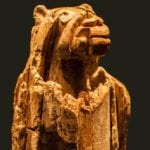 Mysteries
Mysteries  Mysteries
Mysteries  Weird Stuff
Weird Stuff 10 Routine Traffic Stops That Led to Unbelievable Discoveries
 Humans
Humans 10 Ancient Civilizations That Don’t Get Enough Credit
 Movies and TV
Movies and TV 10 Movies That Made People Change Careers
 Religion
Religion 10 Lesser Known Roman Gods
 Travel
Travel 10 Unique Places with Crazy Claims to Fame
 Weird Stuff
Weird Stuff 10 Dates When the Apocalypse Was Supposed to Happen
 History
History 10 Unusual Places Where Priceless Treasures Were Hidden in WWII
 Music
Music Ten Perplexing Mysteries in Pop Music
 Crime
Crime 10 Courtroom Behaviors That Infuriate Judges
 Mysteries
Mysteries 10 Unsolved American Mysteries
 Weird Stuff
Weird Stuff 10 Routine Traffic Stops That Led to Unbelievable Discoveries
 Humans
Humans 10 Ancient Civilizations That Don’t Get Enough Credit
Who's Behind Listverse?

Jamie Frater
Head Editor
Jamie founded Listverse due to an insatiable desire to share fascinating, obscure, and bizarre facts. He has been a guest speaker on numerous national radio and television stations and is a five time published author.
More About Us Movies and TV
Movies and TV 10 Movies That Made People Change Careers
 Religion
Religion 10 Lesser Known Roman Gods
 Travel
Travel 10 Unique Places with Crazy Claims to Fame
 Weird Stuff
Weird Stuff 10 Dates When the Apocalypse Was Supposed to Happen
 History
History 10 Unusual Places Where Priceless Treasures Were Hidden in WWII
 Music
Music Ten Perplexing Mysteries in Pop Music
 Crime
Crime 10 Courtroom Behaviors That Infuriate Judges
10 Court Jesters And Their Japes
Court jesters were powerful figures in the courts of monarchs around the world. Often kitted out in distinctive outfits they enjoyed the extravagant luxury that most people could only dream of. As long as they made the monarch laugh the jester was secure in their position. It was also position of unique power because they were allowed to say things that would otherwise have a monarch calling for a headsman.
Here are ten of histories greatest jesters and their japes.
Top 10 Clowns You Don’t Want To Mess With
10 Jeffrey Hudson
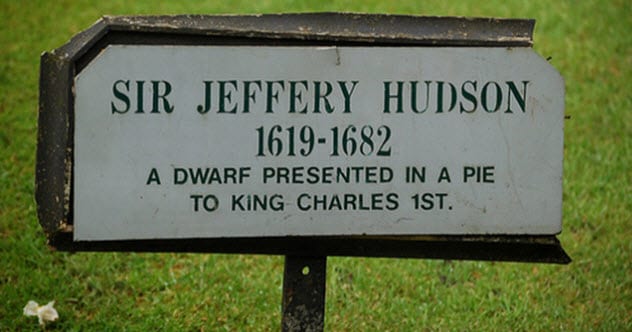
One way to win a ruler’s eye and then the position of court jester was to have a physical difference. Hunchbacks, the tall, and dwarfs were always welcome additions in a court. Sir Jeffrey Hudson stood just 18 inches tall when he was presented to Queen Henrietta Maria in 1626 at seven years old. He made his appearance by leaping from a pie, dressed in a miniature and glittering suit of armour.
He followed the queen across the country as she travelled and entertained her in private. Because of his short stature but perfect proportion he was considered one of the “wonders of the age.” The court would roar in laughter when a porter who was over 7 feet tall pulled Hudson from his pocket. Alas England was soon to be plunged into a civil war and Hudson was the pet of the losing side.
When the parliamentary forces came close to catching Queen Henrietta Maria Hudson refused to abandon her and rushed to her defence with a sword and pistol. For his bravery he was named Captain of Horse. His bravery cost him dearly when he followed the queen into exile in France.
When another exile mocked Hudson too harshly the dwarf challenged him to a duel. Hudson blew the man’s brains out with a single shot. For this he was banished. Later captured by Barbary pirates he was held in slavery for 25 years.
9 Borra

Since a single word from a king could prove deadly then it was a matter of utmost importance that they be kept in a good mood. Kings were always fretful when they were ill because people might begin to think about who would replace them – and might try to cull their possible successors. So jesters often attended ill monarchs as assiduously as doctors.
When king Martin I of Aragon lay in his sick bed his jester Borra was called to entertain him. Borra unfortunately was slow to come so the king asked what had kept him. Borra’s joke was apparently so funny that it finished the monarch off. You have been warned.
“In the next vineyard, where I saw a young deer hanging by his tail from a tree, as if someone had so punished him for stealing figs.”
Assuming you survived that sally of the jester’s wit and are still reading this you are luckier than King Martin I. He found it so amusing that he laughed for a solid three hours before falling from his bed and dying.
8 Taillefer

The Battle of Hastings in 1066 was one of the great turning points in British history. The victorious Normans led by William the Conqueror completely reshaped English society. Few know however that the first Norman to die in the battle was not a ferocious warrior but the court jester of the Conqueror.
Taillefer was a juggler and singer and he did both of these things in front of the Norman forces. Singing the Song of Roland and tossing swords above his head Taillefer apparently amused his own side. The English were less taken with his japes. One soldier rushed out and challenged him, but Taillefer managed to slay him. Taillefer then ran into the English lines – but his luck ran out and he was killed. For some reason he was left out of the Bayeux tapestry despite his sword juggling antics.
Interestingly the name Taillefer can be translated as “hewer of iron” in French. 900 years after Taillefer left Normandy another “Hewer of Iron” would land there. Eisenhower can also be translated as “Hewer of Iron.”
7 Mathurine de Vallois
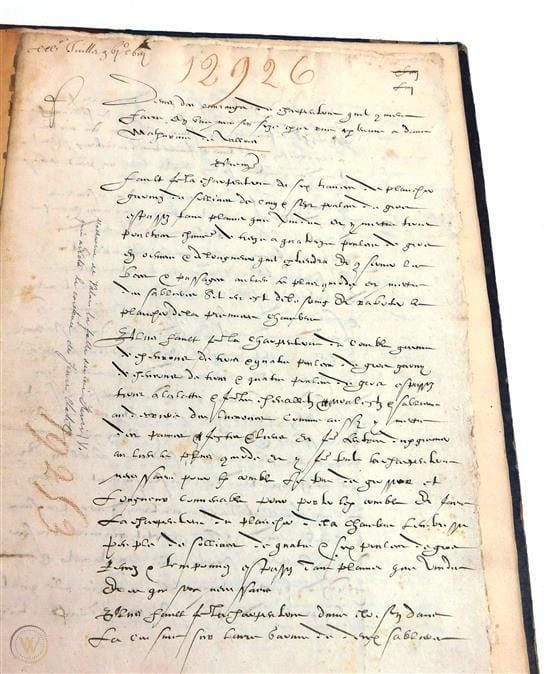
Mathurine de Valois served at the French royal court under kings Henry III, Henry IV, and Louis XIII around 1600. She was as famous for her eccentric outfit as for her sharp wit. She tended to appear at the court dressed as an Amazon warrior, complete with wooden shield and sword.
While jesters held a privileged position in court they were not immune to the jealousy of others. One haughty lady of the court found herself placed beside Mathurine at a feast and proclaimed “I don’t like having a fool at my right.” Mathurine leapt up at once and sat on the other side of the lady. “I don’t mind it at all,” she said.
Mathurine was said to be so funny that she could ridicule people out of their Protestant faith and make them Catholics again. She was also brave. When an assassin appeared at the king’s bedroom door and tapped on it with a dagger the king blamed Mathurine for the noise. “Devil take that fool with her tricks,” he said. But it was Mathurine who stopped the assassin escaping by blocking a doorway.
6 Philip VI’s Jester
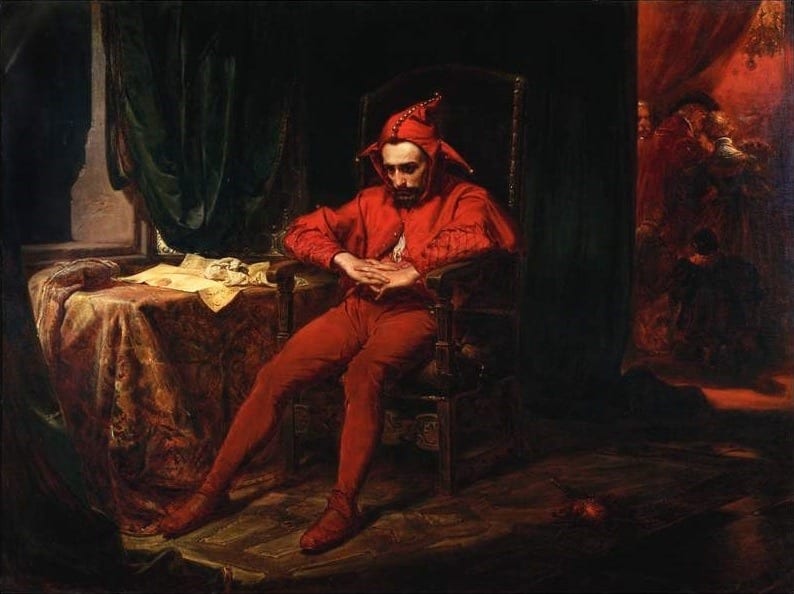
The Hundred Years War between the English and the French was a series of wars dragged on for 116 years. One of the earliest large battles of the conflict saw a hundred English ships face a French fleet twice their number at the Battle of Sluys. The English did not even have a purpose built navy. Edward III only had three ships of his own – the rest of his navy was requisitioned from merchants.
Yet the English fleet managed to destroy the numerically superior French force. Around 20,000 French soldiers and sailors lost their lives in the battle. It was one of the greatest naval defeats in European history. Perhaps understandably no one at court wanted to be the one to tell their king Philip VI.
The court jester was the one to step up. “Our knights are much braver than the English,” he told the king. “How so?” The king asked. “The English do not dare to jump into the sea in full armour.”
5 Will Somers
Henry VIII had a bit of temper, as his many ex-wives could have told you – so long as Henry left them with their head. To be his court jester was a perilous position but one the Will Somers managed to occupy for decades.
As the “King’s Fool” Somers was given extraordinary access to the king. He was allowed to enter the king’s bedchamber when even his highest nobles were stopped at the door. Somers did not always use his fool’s position wisely. He once made a joke about Anne Boleyn, while calling Princess Elizabeth a bastard, that made Henry so angry he threatened to kill the jester. Somers managed to survive and held his place at court. He was even featured in a portrait of the Tudor family and the king had him depicted in his own private prayer book.
Despite being known for a generally gentle form of humour Somers once shamed a juggler so much that he left court. One joke ended with him throwing milk in the juggler’s face – and the juggler left court forever.
Because Somers was able to calm the raging king he was well loved by nobles who otherwise might have suffered Henry’s wrath. Robert Armin wrote a poem in his honour.
“Few men were more beloved than was this fool
Whose merry prate kept with the King much rule.
When he was sad the King with him would rhyme;
Thus Will exil’d sadness many a time.”
4 Dongfang Shuo
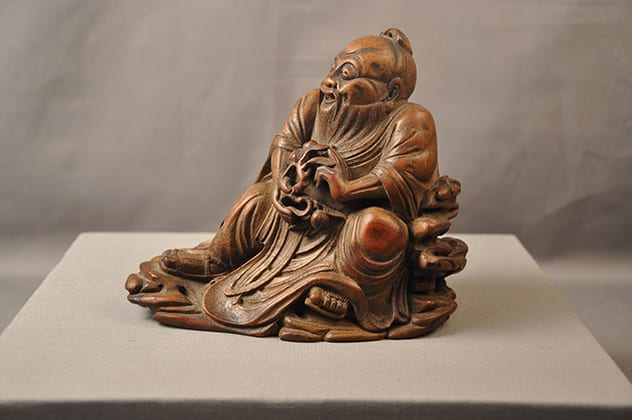
Wit was greatly prized in the courts of Chinese emperors, even when the wrong joke could see a person executed for saying the wrong word. Yet there was one jester who managed to not only survive but become a deity.
Dongfang Shuo managed to win a place at the court of Emperor Wu by boasting about both his all round greatness and his impressive height. Amused by his pompous manner the emperor hired him but did not give him anything to do. To catch the emperor’s attention he tricked all the palace dwarfs into bowing down to emperor – when the emperor asked them who made them do this they told him it was Dongfang. The emperor challenged him and he replied:
“The dwarfs are somewhat over three feet in height, and as a stipend they receive one sack of grain and 240 cash each. I am somewhat over nine feet in height, and as a stipend I too receive one sack of grain and 240 cash. The dwarfs are about to die from overeating, I am about to die of hunger.”
The Emperor laugh and Dongfang went on to be an imperial advisor and favoured scholar. Later he was adopted as a god of gold and silver and became a stock figure in Chinese art.
3 The Earl of Rochester
After the English Civil War the monarchy was abolished, only to be restored in 1660 with the return of Charles II. While his mother and father had employed jesters Charles II clearly found them a bit old fashioned for he did not. Instead he relied on the people around him to be amusing. Everyone agreed that John Wilmot, second Earl of Rochester, was the wittiest man alive – as well as being one of the worst people you would ever meet.
Young, dashing, and handsome he was a hit at court. A quick wit and poetic nature allowed him to become the unofficial jester of the Restoration Era. He once wrote this rhyme outside the King’s bedchamber:
“Here lies our sovereign lord the king,
Whose word no man relies on;
He never says a foolish thing,
Nor ever does a wise one.”
The King replied by saying “That’s true, for my words are my own, but my actions are those of my ministers.” Unfortunately some other japes could not be forgiven so easily. Rochester was a drunk, a rapist, and violent to boot. It was no surprise when Rochester died in his thirties of the effects of drunkenness and syphilis. One of his poems seems to sum up his end.
“After a search so painful, and so long
That all his life he has been in the wrong.
Huddled in dirt the reasoning engine lies
Who was so proud, so witty and so wise.”
2 Hershel of Ostropol
Hershel of Ostropol was a jester who made his way in the world relying entirely on his wits. Beginning in poverty he was first a butcher but his jokes made the townspeople so upset that he just left his job and moved around as a travelling funny man. Over the centuries he has become a stock figure in folk stories.
Among the tales told about him are the time he refused to doff his cap to noble passing by. The lord was offended. “Where are you from?” He demanded. “Ostropol,” Hershel replied. “And what about the hat?” Hershel smiled and said “The hat is from Ostropol too.”
After his travels, impressing poor people with his ability to mock the wealthy, he ended up as the unofficial jester of Rabbi Boruch of Medzhybizh. The Rabbi was supposedly a deeply melancholy man but Hershel’s wit was the one thing that made him feel better.
1 Roland the Farter
The oldest joke in the world dates from Sumeria around 1900 BC and goes as follows: “Something which has never occurred since time immemorial; a young woman did not fart in her husband’s lap.” In the 5th century AD Saint Augustine of Hippo noted that some people could “produce at will such musical sounds from their behind (without any stink) that they seem to be singing from the region” Farts have always been funny it seems, but some people have made whole careers out of it.
Henry II of England was apparently very amused by the antics of a man who has become known to history as Roland the Farter. The king loved this jester and his gusts of wind that he gave Roland a manor house and 30 acres of land.
Little is known about the life of Roland the Farter but is recorded that the rent he owed to the crown for his land was “Unum saltum et siffletum et unum bumbulum” – One jump, one whistle, and one fart.
10 Things That Will Make You Die Laughing







